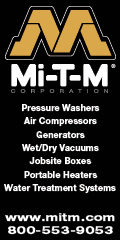
| Past Issues/Subscribe | Advertise |
Legislation Aims to Prevent Prop. 65 Drive-By Lawsuits
The California Chamber of Commerce and a coalition including local chambers of commerce and statewide employer groups are supporting legislation that aims to stop drive-by lawsuits. AB 227 (Gatto; D-Los Angeles) is a job creator that protects small businesses from drive-by lawsuits by providing a 14-day right to cure for allegations of a failure to post a Proposition 65 warning.
Proposition 65
Proposition 65, approved by voters in 1986, enacted "The Safe Drinking Water and Toxic Enforcement Act of 1986," which is designed to protect California’s drinking water from chemicals known to cause cancer or birth defects, and to warn members of the public about the presence of those chemicals in their environment to help them avoid exposure.
Since its enactment, Proposition 65 has helped protect the public by incentivizing businesses to renovate their facilities, reformulate their products and update their manufacturing processes to eliminate the use of listed chemicals.
Proposition 65 requires, among other things, that a private business with more than 10 employees post warnings when it knowingly exposes workers or the public to listed chemicals. These warnings can take the form of placards in business establishments where listed chemicals exist or are released into the environment, or as part of the labeling of a consumer product that contains a listed chemical. Currently, there are 774 chemicals on the list.
Drive-By Lawsuits
These benefits have not come without a cost to the economy, however. AB 227 addresses one very avoidable cost that results from the practice of a handful of law firms in targeting businesses with drive-by lawsuits, alleging the businesses do not have adequate signage required by Proposition 65.
These lawsuits can easily cost several thousand dollars to litigate, causing many small businesses to settle out of court regardless of whether they actually needed to have signage posted at their business establishments, or if they failed to realize signage was necessary in a good faith mistake.
Lengthy List
The 774 chemicals on the Proposition 65 list range from those that pose limited or no risk based solely on their presence at a business establishment – such as alcoholic beverages and aspirin – to others that pose an obvious and widely known risk, like diesel engine exhaust and tobacco smoke.
Given the range of listed chemicals, it’s easy to understand why business owners sometimes fail to realize a warning sign is required.
Further, many business owners rightly determine that signage is not warranted given the exposure levels of a particular chemical at the business establishment, or that no listed chemicals are present at all, but this does not prevent a firm from making an allegation in a demand letter in order to pressure the business into handing over a small settlement.
Hundreds of businesses are targeted in these lawsuits each year, costing the state millions of dollars in lost productivity and jobs.
AB 227 will help eliminate the inappropriate use of litigation, while ensuring that the public does receive Proposition 65 warnings when appropriate.
Action Needed
AB 227 is scheduled to be considered April 16 by the Assembly Environmental Safety and Toxic Materials Committee. Contact committee members and your Assembly representative and urge them to support AB 227. |

| calrental.org |



